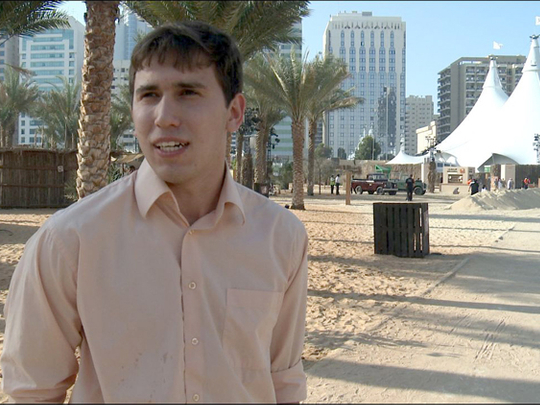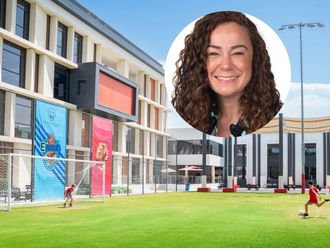
Abu Dhabi: Ayaz Kamalov was fascinated by pearl diving, a dangerous occupation that in the past helped to support hundreds of Emirati families in the UAE.
But when he set out to craft a short documentary about the trade, he was surprised by his inability to find personal testimonies and information.
“This made me wonder why the rich history of the UAE is being forgotten, especially as most young people here know and understand its importance,” Kamalov, a 21-year-old student at New York University Abu Dhabi (NYUAD), told Gulf News.
In a bid to find answers, the budding documentary filmmaker discovered many challenges that are hampering the passing on of traditions and historical accounts.
“I found that people with family members who had once practiced pearl diving knew about the activity much better than their counterparts,” Kamalov said. “But this information was not being passed on to others, often because many of these elderly members are hesitant to speak to those they are unfamiliar with.”
At the same time, many of the interviewees said that modernity and progress had come to the UAE too quickly, bringing with it things that the younger generation simply finds more attractive than learning about history. The country itself is so developed now that it seems impossible to imagine it 40 years ago.
“I come from Russia, and history is an integral part of the educational curriculum there,” Kamalov said. “It is a requirement that everyone must know what shaped society into what it is. But the youth here told me that that UAE history is only taught me in a few classes each semester, and even then, topics like pearl diving are not explored in depth.”
Expatriates have even fewer opportunities to understand the UAE’s heritage.
Kamalov said that he found it difficult to find people who were willing to talk to him about pearl diving, and that several were uncertain because they did not know him.
Older Emiratis also pointed out that the lack of written documentation in an area where oral traditions were prevalent added to the problem.
So he changed the focus of his documentary, a final-year project for his major in film studies, and instead asked 10 different people what could help to create more awareness about the UAE’s journey so far.
“I spoke to both Emiratis and expatriates aged between 18 and 75 years, and they agreed that there should be more dedicated shows and festivals highlighting these historic narratives,” Kamalov said. “Interviewees said that there is just the Qasr Al Hosn Festival in Abu Dhabi at present, and this just runs for two weeks each year, which is simply not long enough.”
Others suggested introducing more heritage villages and exhibitions that are captivating enough to hold the attention of visitors and residents, as well as theatrical performances.
Kamalov, who will graduate on May 25 as part of the first batch at NYUAD, hopes to screen the documentary at local film festivals. He would also like to film a longer version if he can secure funding for the project.
“I learnt a lot more about the UAE while working on my project, and I would love for more people to get this kind of exposure,” he said.












